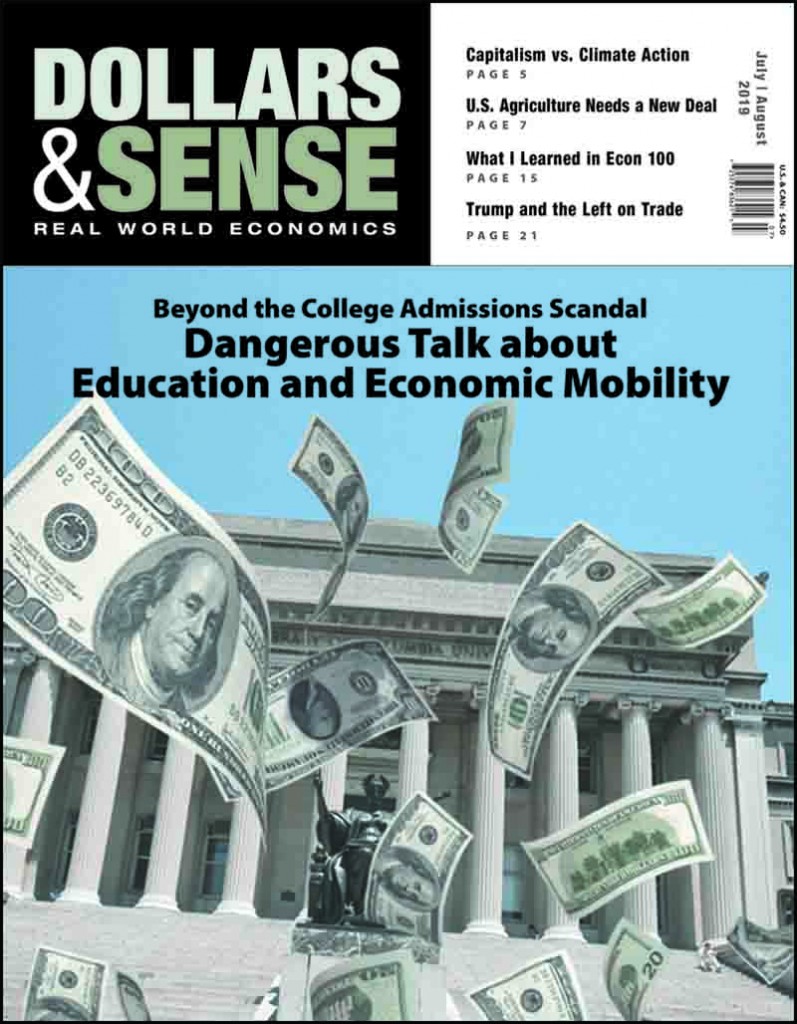Fighting Climate Change in Portlandia
Not only is failure not an option, those fighting to avert cataclysmic climate change have achieved important successes worthy of celebrating.

Our very latest issue is finally out. (I hope not to have to keep using this joke, due to our comrades at Current Affairs, to make light of how late we've been coming out with our issues.) We just posted John Miller's cover story, Dangerous Talk about Education and Economic Mobility. Here is the page 2 editors' note, which ends with a sad announcement:
For context on the loss of working-class power and economy-wide resource-hoarding by capitalists, check out this issue’s 45th-anniversary retrospective article, “Public Capital, Private Profit,” from November 1988. The article, by professor emerita at UMass-Boston and then-D&S collective member Catherine Lynde, documents how, by the late 1980s, the rate of public investment in infrastructure and other public goods—roads, bridges, public transit, and schools—had slowed from its post-World War II peak. According to a recent New Labor Forum article co-authored by D&S columnists John Millerand Arthur MacEwan, the slide in public investment has continued apace since the 1980s: “[G]ross government investment (federal, state, and local) in the 2010 to 2016 period averaged 3.7% of GDP; in the 1950s and 1960s, the figure was greater than 6%, close to 5% in the 1970s and 1980s, and just over 4% in the 1990s and 2000s.”
Why the slide in public investment? Business interests demanded that corporate taxes and government spending be slashed. But the effort backfired: Declining public investment has contributed to a decline in business profits. Capitalists have responded to these trends by cutting wages (hence wage stagnation); by demanding cuts environmental controls and other regulations; and, in a downward spiral, by demanding yet further tax cuts and spending cuts.
This issue’s Comment, by New School economists Ying Chen and Güney Işikara, takes a yet broader perspective to show how the self-reinforcing downward spiral of the erosion of working-class power and resource-hoarding by capitalists is especially dangerous in the era of accelerating climate change. Capitalists are more and more in charge of the “economic surplus” that would need to be tapped to address the climate crisis. But since capitalists are most insulated from the effects of climate change, they appear to be unwilling to deploy the resources they control to address the crisis. Unless a working-class movement can pressure the capitalists to give up their control of the resources needed to deal with the climate crisis, the economic and ecological downward spirals will continue apace. “At stake is both the political legitimacy of our current global economic system and the fate of a livable environment for human beings.”
Also in this issue: The case for a 21st-century New Deal for U.S. agriculture; what’s wrong with intro economics; Trump vs. progressives on global trade; and more!
***
With great sadness we announce the death of Frank Ackerman, one of the founders of Dollars & Sense, our first staff person, and frequent D&S author (including of our March/April 2019 cover story). There will be a memorial service for Frank at Tufts University on September 18th. Please contact Brian Roach (brian.roach@tufts.edu) for details about the memorial service. We will publish tributes to Frank in our September/October issue, and a review of his latest book, Worst-Case Economics.